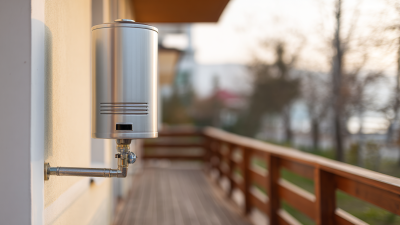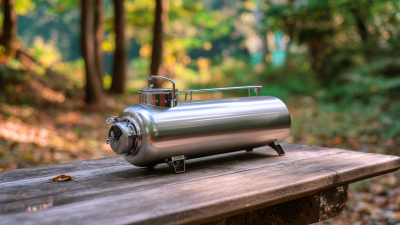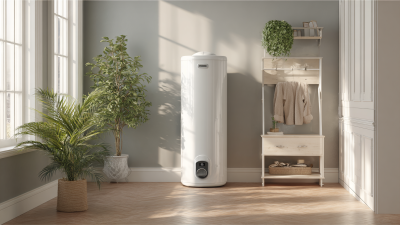
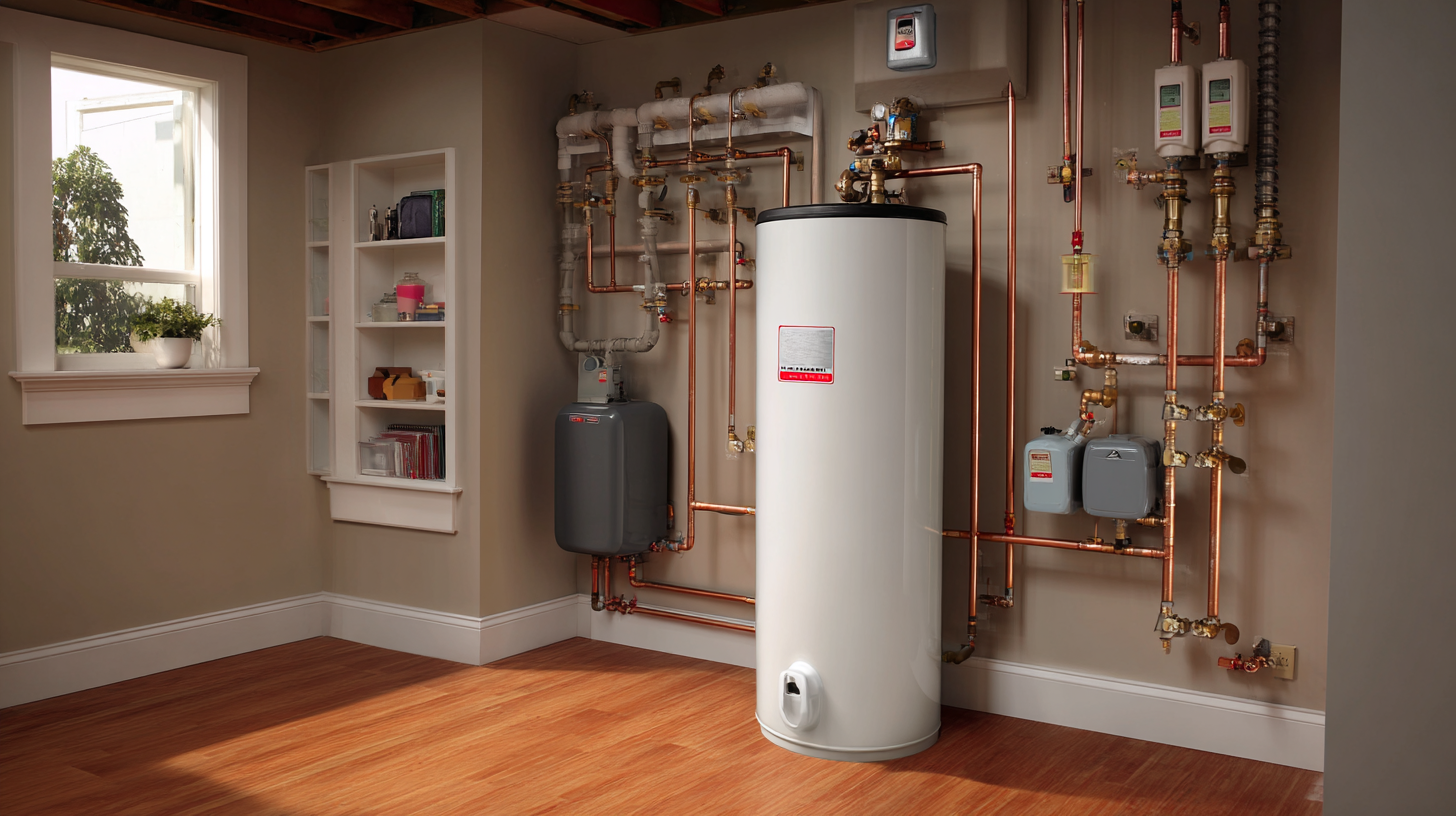 As energy efficiency becomes increasingly crucial in modern homes, the significance of the Indoor Water Heater is gaining traction among homeowners and industry experts alike. Recent reports from the U.S. Department of Energy highlight that water heating accounts for approximately 18% of a household's energy consumption, making it the second-largest energy expense after heating and cooling. In light of this, innovative indoor water heater technologies are emerging, promising substantial savings and enhanced performance.
According to the Energy Information Administration, energy-efficient models can reduce water heating costs by up to 50%, paving the way for considerable long-term savings and a lower carbon footprint. By embracing advancements such as smart thermostats and heat pump technology, homeowners can not only optimize their energy usage but also contribute to a more sustainable future. As we explore the benefits and features of indoor water heaters, it becomes evident that they are not just a trend but a pivotal element in the quest for home efficiency and energy conservation.
As energy efficiency becomes increasingly crucial in modern homes, the significance of the Indoor Water Heater is gaining traction among homeowners and industry experts alike. Recent reports from the U.S. Department of Energy highlight that water heating accounts for approximately 18% of a household's energy consumption, making it the second-largest energy expense after heating and cooling. In light of this, innovative indoor water heater technologies are emerging, promising substantial savings and enhanced performance.
According to the Energy Information Administration, energy-efficient models can reduce water heating costs by up to 50%, paving the way for considerable long-term savings and a lower carbon footprint. By embracing advancements such as smart thermostats and heat pump technology, homeowners can not only optimize their energy usage but also contribute to a more sustainable future. As we explore the benefits and features of indoor water heaters, it becomes evident that they are not just a trend but a pivotal element in the quest for home efficiency and energy conservation.
Indoor water heaters are gaining traction in home efficiency discussions, primarily due to their ability to conserve energy and reduce utility costs. According to the U.S. Department of Energy, water heating can account for about 18% of a home's energy use, reinforcing the need for more efficient systems. By investing in modern indoor water heaters, homeowners can potentially lower their energy consumption by up to 50% compared to older models. This significant reduction not only translates to lower bills but also diminishes the carbon footprint associated with residential energy use.
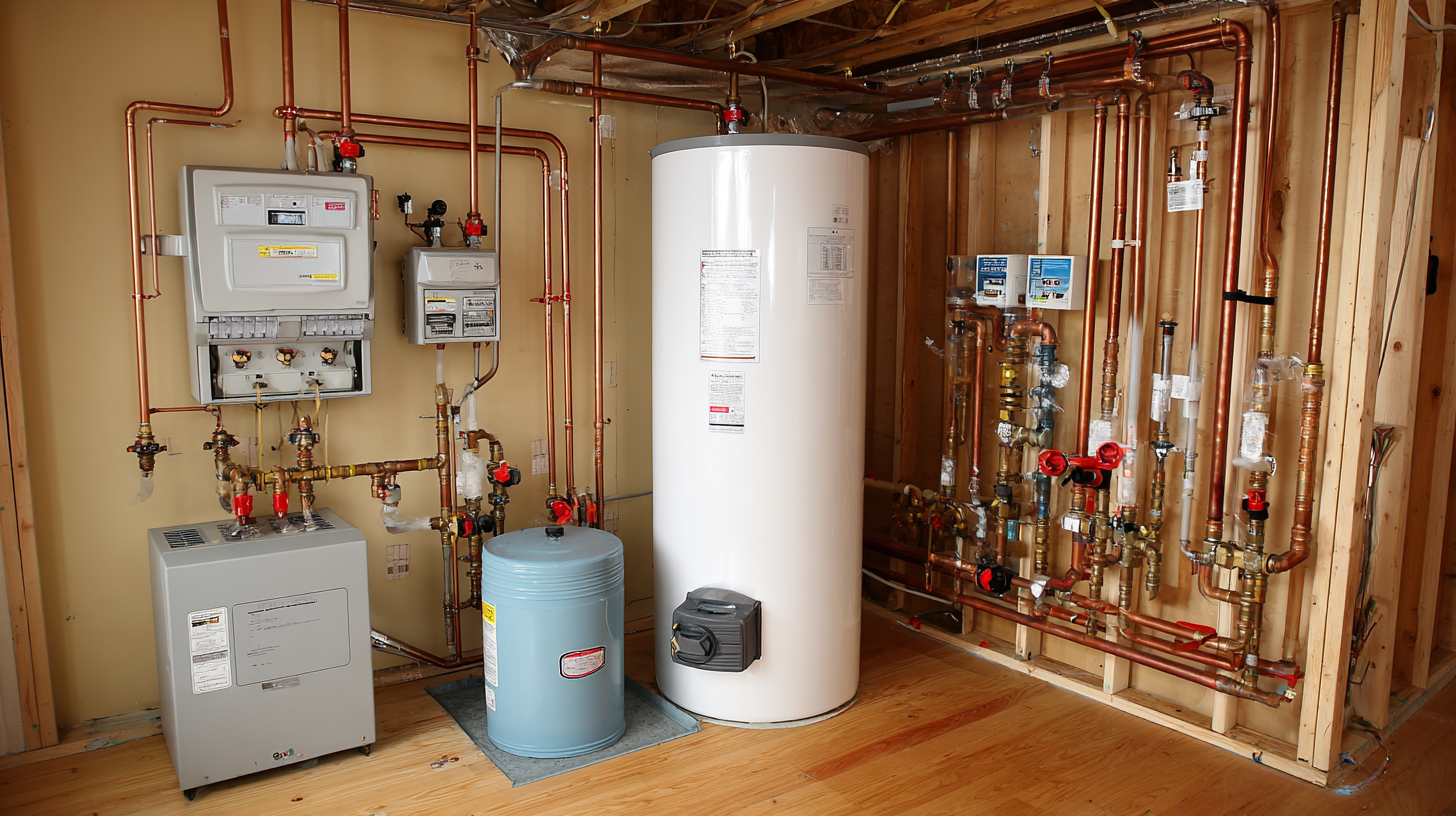
Moreover, advances in technology have led to the development of high-efficiency indoor water heaters, such as tankless and hybrid systems. The International Energy Agency (IEA) reports that these systems can yield savings of approximately $100 to $200 annually on energy costs. Additionally, many states now offer incentives or rebates for homeowners who upgrade to energy-efficient appliances. By understanding these benefits and the potential long-term savings, homeowners are empowered to make eco-friendly choices that enhance both comfort and efficiency in their homes.
Choosing the right indoor water heater is crucial for improving household efficiency and ensuring energy savings. With rising awareness about health and quality of living, the demand for energy-efficient appliances has surged. According to recent data, the market for energy-saving home appliances is projected to grow by 10% annually, driven by consumers' increasing preference for sustainable options that also enhance their daily comfort.
Various innovative water heater technologies are making strides towards more compact and efficient designs. For instance, models that utilize advanced pumping technologies can significantly reduce energy consumption, making them ideal for smaller homes as well as for consumers seeking to cut down on utility bills. Furthermore, with the incorporation of smart technology, homeowners can now manage heating times and temperatures remotely, ensuring hot water is available precisely when needed while minimizing energy waste. Industry studies suggest that adopting high-efficiency units could result in a 30-50% reduction in energy usage compared to traditional heaters, leading to substantial long-term savings.
As consumers navigate the myriad options available, selecting a reputable brand known for quality and innovation can greatly impact user satisfaction and energy savings. Households are encouraged to consider unique household needs, space limitations, and energy ratings to make informed decisions that align with their lifestyle and environmental goals.
| Type of Water Heater | Energy Efficiency Rating (EF) | Average Cost ($) | Water Heating Speed (Gallons/hour) | Lifespan (Years) |
|---|---|---|---|---|
| Tankless | 0.82 - 0.94 | 800 - 1,500 | 2 - 5 | 20 |
| Storage (Tank) | 0.50 - 0.70 | 300 - 600 | 30 - 40 | 10 - 15 |
| Heat Pump | 2.0 - 3.0 | 1,200 - 2,000 | 25 - 30 | 15 |
| Solar | 0.85 - 1.0 | 3,000 - 6,000 | 50 | 20 |
When considering the installation of an indoor water heater, safety and efficiency should be paramount. Modern tankless water heaters are designed to provide hot water on demand, improving energy efficiency by only activating when water is needed. This can lead to significant energy savings compared to traditional tank systems that continuously heat water. When installing a tankless system, ensure that the heating unit is appropriately sized for your home's needs to optimize performance.
In addition to tankless options, new developments in heat pump water heaters are transforming how homeowners approach water heating. These systems not only use electricity more efficiently by extracting heat from the air but also offer a safer alternative to traditional gas units when properly installed. Adequate ventilation is crucial, especially for systems that vent outdoors. Always consult local regulations and, if unsure, enlist professional help to guarantee a safe and effective installation that maximizes your home's energy savings.
Smart water heating solutions have emerged as a pivotal component in enhancing home energy efficiency and achieving significant cost savings. According to a report by the U.S. Department of Energy, heating water accounts for approximately 18% of a home's total energy use, making it the second-largest energy expense after heating and cooling. By investing in advanced technology such as smart thermostats and demand-responsive water heaters, homeowners can optimize their energy usage and reduce wastage. These systems can be programmed to heat water during off-peak hours, taking advantage of lower electricity rates and ultimately lowering monthly bills.
Moreover, a study by the Energy Efficiency Institute highlights that homes equipped with smart water heating systems can see a reduction in energy consumption by up to 30%. These innovations not only improve convenience—allowing users to control settings remotely—but also come with features such as leak detection and maintenance alerts that prolong the life of the equipment. By transitioning to these intelligent solutions, homeowners can embrace a more sustainable lifestyle while keeping operational costs down, paving the way for a more energy-efficient future.
This chart illustrates the estimated annual energy savings in kilowatt-hours (kWh) offered by different types of water heaters. As seen, smart water heaters provide the highest energy savings, highlighting their efficiency and capability to reduce energy consumption in homes.
Maintaining your indoor water heater is crucial for ensuring optimal performance and extending its lifespan. Regular maintenance can prevent costly repairs and enhance energy efficiency, with the U.S. Department of Energy estimating that proper maintenance can reduce energy consumption by up to 15%. To keep your water heater functioning efficiently, start by checking the temperature setting. It is recommended to keep the thermostat at 120°F, which not only saves energy but also prevents scalding.
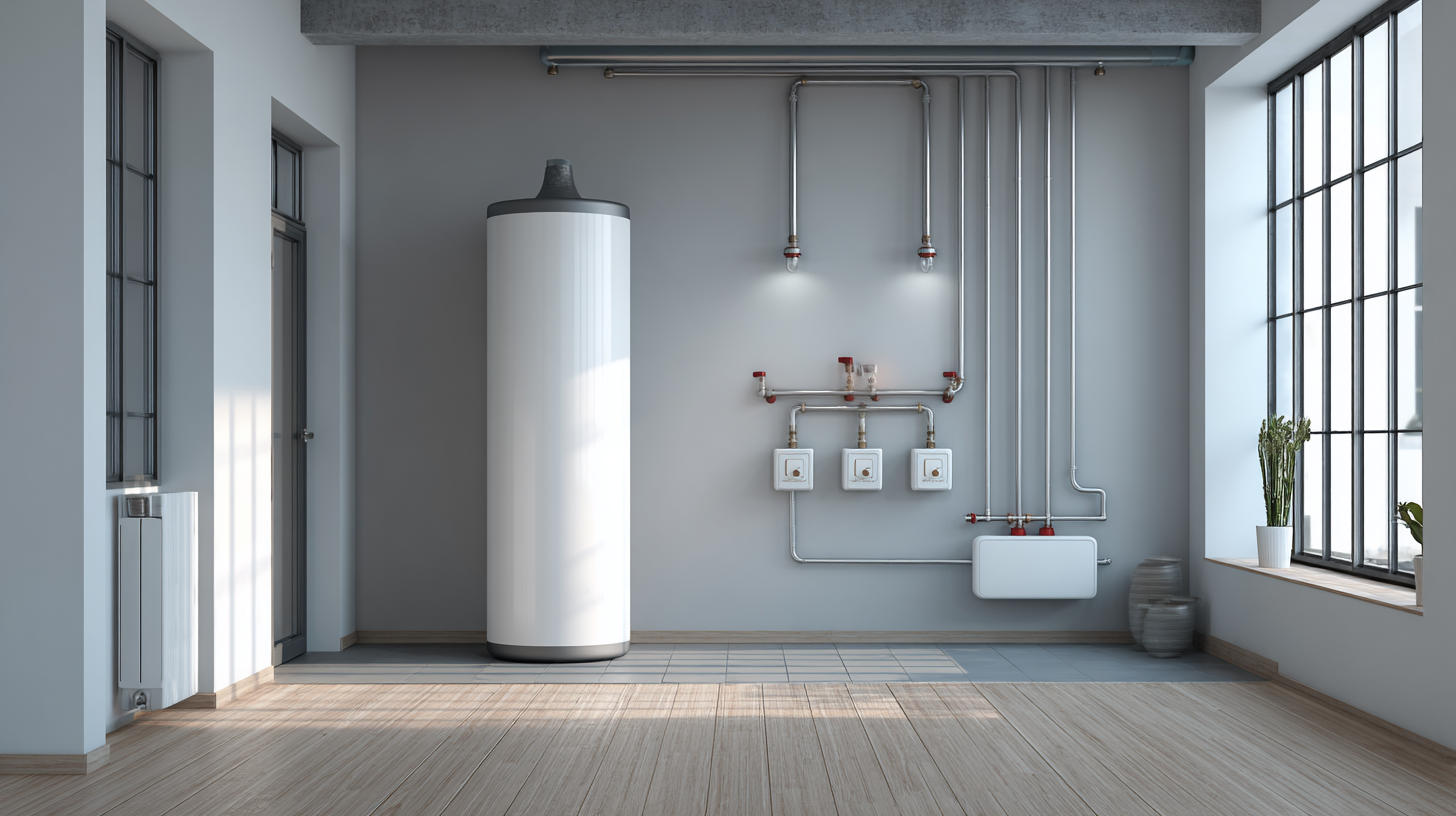
Another key maintenance task is flushing the tank to remove sediment buildup, which can compromise efficiency. The Environmental Protection Agency suggests flushing your water heater at least once a year to maintain its efficiency and prevent corrosion. This simple step can improve heating performance and help the unit run as smoothly as possible, potentially saving homeowners an average of $40 annually on energy bills. Incorporating these maintenance practices helps ensure that your indoor water heater operates at peak efficiency, providing you with reliable hot water while also being environmentally friendly.

